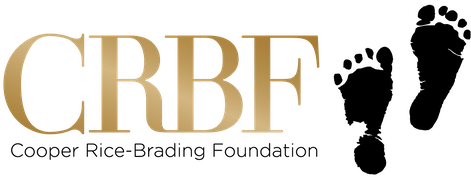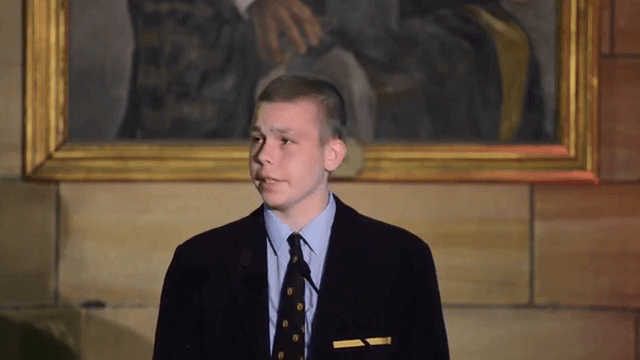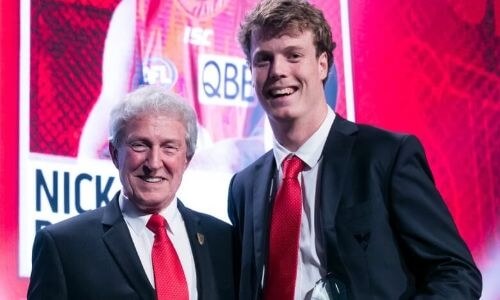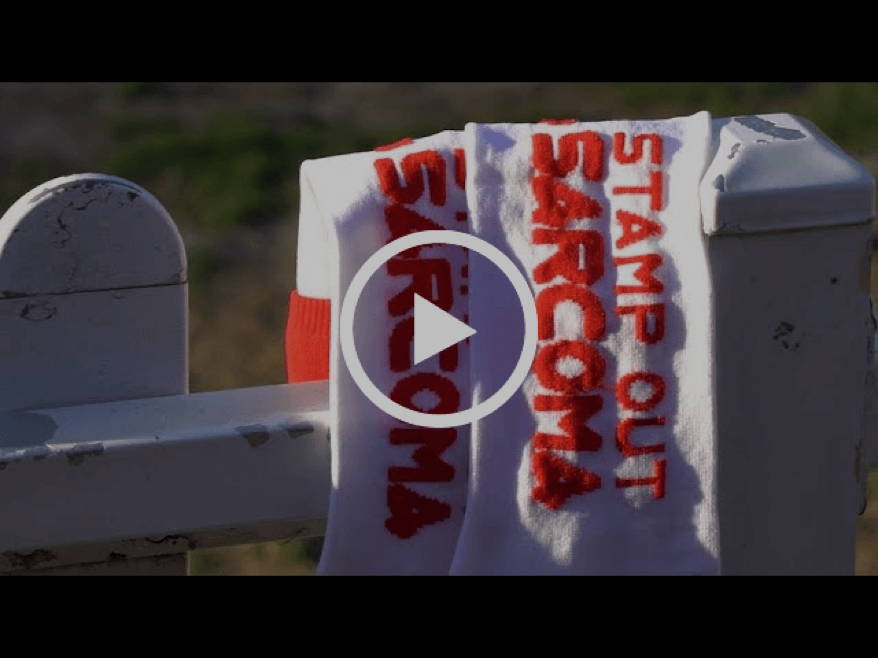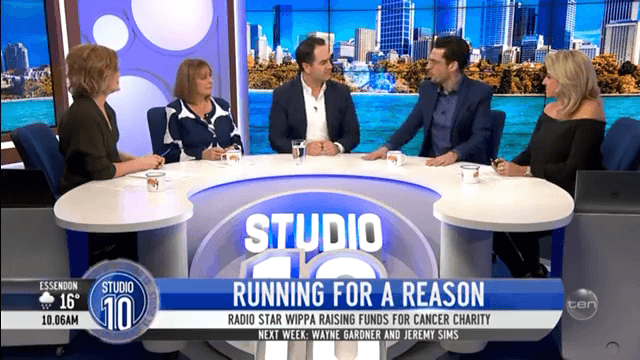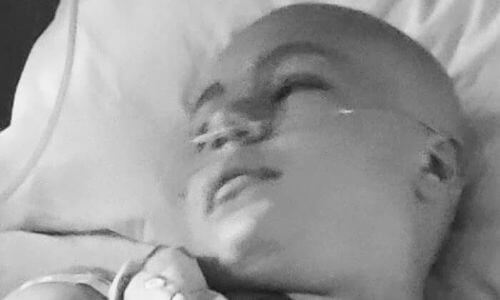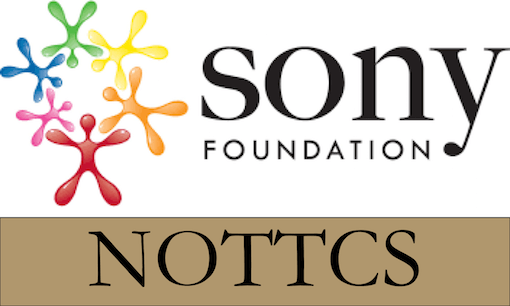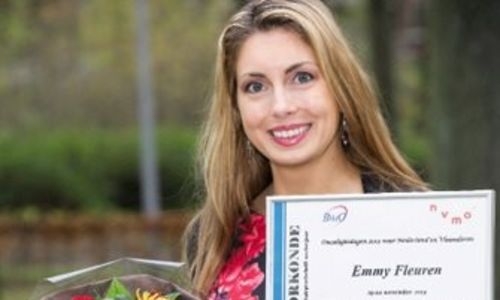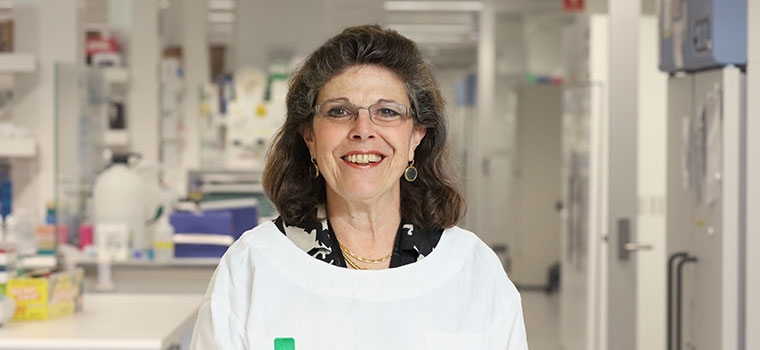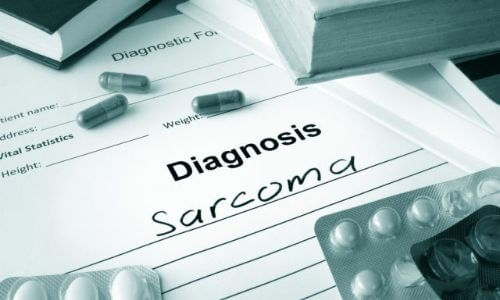Great people doing great things…
August of 2019 saw Swans rising star Nick Blakey shining a light on sarcoma in memory of Cooper, who was his team mate and, at times, his on-field adversary. Nick did this by attending a training session at the East Sydney Bulldogs home ground at Trumper Park, a ground that holds so many memories of Nick and Cooper fiercely contesting the AFL ball during their junior years. In Nick and Coop’s teams over the years were many other young keen players, including Jack Weinert and his younger brother Tom, who were overseen as coach by their Dad, former Sydney Swans Chairman & President Peter Weinert, a quiet and understated man who had volunteered his time to coach the boys.
Peter contacted CRBF after he saw the article published on Nick’s visit, writing the following: “By going to Trumper Oval when Nick did, it resulted in an article in the paper which may attract people such as me, who may like to contribute even in a very small way initially, to the incredibly important cause you are now involved in”. Peter also shared a precious photo from those Easts Bulldogs days, and in an unexpected twist was pictured standing side by side with Cooper in a team photo which included his son Jack, as it turns out, he was Cooper’s original coach at Trumper (pictured).
By means of background, Peter, when Chairman and one of the private owners of the Club, played a leading role in the survival of the Sydney Swans in Sydney. In 1992 he led the fight to save the Swans from extinction in Sydney, together with the great support of Mike Willlesee and Craig Kimberley after several years of on field turmoil and potential financial ruin. Along with Basil Sellers and John Gerahty, overseas based Owners also providing financial support, these five were inducted into the Swans Hall of Fame in 2015 under the Heritage Listing as “True Believers”.
In 1996, less than four years after the club faced extinction, the Sydney Swans played in their first AFL Grand Final under the then revitalised new Club administration, and Peter along with his co-Owners were permanently etched in Swans Club history. After eventually serving as the No. 1 Ticket Holder for 11 years Peter became a Patron of the Swans, and it is indeed fitting the Player’s Club Lounge at the SCG bears his name.
Through Peter’s understated generosity, together with Nick’s willingness to volunteer his time to memorialise his former team mate at Trumper Oval, Peter now holds the distinction of being our largest individual donor directly supporting clinical research into sarcoma.
It is difficult indeed to articulate our thanks to Nick and to Peter for their thoughtfulness, selflessness and generosity.
National Sarcoma Awareness Campaign
Studio 10: Running for a reason
Zero Childhood Cancer $67m boost
The innovative and highly successful Zero Childhood Cancer program (ZERO) has this week received $67 million collaborative funding from the Federal government and Minderoo Foundation, to provide all children and adolescents with cancer the greatest chance of survival.
ZERO has changed the way diagnosis and treatment occur for children with the most aggressive cancers or for those with relapsed cancers. New funding committed by the Commonwealth Minister for Health, the Hon Greg Hunt of $54.8million together with $12.2million from Andrew and Nicola Forrest’s Minderoo Foundation will ensure ZERO is expanded, and will eventually be offered to all children diagnosed with cancer by 2023.
Each year, almost 1000 children and young people are diagnosed with cancer around Australia, and is unfortunately still the most common cause of death from disease
NOTTCS/Sony join forces
On Friday the 21st February, a young 20 year old sarcoma patient underwent a life changing egg harvesting and cryogenic preservation at the Alexandria Day Hospital in Sydney, under the watchful eye of Professor William Ledger. Whilst this may not seem remarkable to those who are fortunate enough not to have to explore such avenues, this young woman is representative of many young cancer patients who slip through the cracks prior to undergoing onerous chemotherapy and surgical regimes to treat their respective cancers.
This process is expensive and it is challenging at times for those who find themselves in need of seeking fertility treatments, in order to have a child. It can be argued those with cancer have already been through quite enough without the added burden of infertility. More often than not the financial strain of this process becomes an enormous burden, preventing many from having children. The emotional and psychological impact of infertility can be immense, and this can me magnified when the patient is young, and has suffered a cancer diagnosis.
This situation is about to change. A national “pioneering service to transport, freeze and store reproductive tissue for young cancer patients” initiated by the Sony Foundation stands to revolutionise this process. “The service – the first of its kind in Australia – will enable medical professionals nationwide to offer free fertility-preserving treatment to youth cancer patients aged 13 – 30 years.”
A gap in the health system for young people with cancer, had been preventing access to affordable fertility preservation options, and this was identified by the Sony Foundation. “Alarmingly, Currently, only 4 per cent of young women and 1 in 4 young men undergo fertility preservation before chemotherapy, despite research showing infertility is the number one issue that has an identified impact on a young person’s quality of life following cancer. ”
CEO of the Sony Foundation, Sophie Ryan said: “Sony Foundation’s funding will ensure this innovative fertility service is available for all young people diagnosed with cancer. No longer will young people miss out on this treatment due to barriers such as lack of access for regional patients, cost and time restrictions. But more importantly, providing access will give young people facing cancer hope and the opportunity to focus on life after cancer.
The team at the National Ovarian and Testicular Tissue Transport and Cryopreservation Service (NOTTCS) led by Professor Kate Stern, has a demonstrated history of fertility preservation, egg and sperm freezing, counselling and support of patients affected by cancer and fertility issues. “This service will enable tissue to be collected, transported and cryopreserved in Melbourne from patients right around Australia. It will give access to state-of-the-art fertility preservation to young people who might have thought that it’s the end of the road for their fertility, said Professor Stern”.
The Sony Foundation’s mission is for 100% of young people who are diagnosed with cancer to be offered fertility preservation that’s free and easily accessible.
CRBF wish to extend our deepest gratitude to Professor William Ledger, Professor Kate Stern, Dr Henry Liberman, The Alexandria Day Surgery Hospital, Kerri and the staff at IVF Australia, Bondi, and Emma Pechey from the Sony Foundaiton.
For further information on the Nationals Ovarian and Testicular Tissue Transport Service:
Call: (03) 83453227
Email: NOTTCS@thewomens.org.au
IVF Australia https://www.ivf.com.au/clinics/bondi-junction-fertility-clinic
Professor Martin Tattersall 2GB
Listen Below:
Congratulations Dr Emmy Fleuren
Our heartiest congratulations to Dr Emmy Fleuren who was announced as a recipient of the Can Too emerging research award, for her work in identifying novel therapeutic targets in sarcoma and develop more selective and effective therapies to combat sarcoma in children.
ACRF research grants 2019
We congratulate Professor Michelle Haber, Children’s Cancer Institute Sydney, as a deserving recipient of the 2019 ACRF annual grant for her ground breaking programme incorporating the liquid biopsy.
Reducing the devastating impact of cancer treatment on children
The current precision medicine treatment recommendations for children are based on an invasive and often painful procedure – tissue biopsy.
The $3.5 Million grant will fund next-generation sequencing technology to develop highly sensitive and minimally-invasive tests for children with cancer- using blood and body fluid samples.
This technology has the potential to benefit paediatric sarcoma patients nationally, and CRBF will be partnering in this exciting initiative over a three year period, to provide a dedicated sarcoma researcher, to work in tandem with this initiative. The programme is the work of Dr Emmy Fleuren, who has incepted the sarcoma specific Phosphoproteomic study, and will work in tandem with the work of Professor Haber, in the area of liquid biospsy.
Read more about the liquid biopsy programme
The IL23 sarcoma clinical study
The Background
When Cooper was in the hospital fighting for his life in Australia, the 18-year-old was extremely curious about why there were no new treatments. He asked his doctors’ many questions his dad Colin Brading noted. Cooper passed due to the bone cancer, tragically, but his family set up a foundation to help search for a cure to the disease—it was what Cooper wanted. His life force lives on in his foundation which will persist from now onward to help others that were in his position.
Enter Interleukin-23 (IL23)
Researchers at Garvan Institute of Medical Research uncovered that the immune molecule is key to the growth of the tumor and targeting it in studies successfully shrank cancer in mice reported 9 News in Australia. Immunotherapies targeting IL23 represent an important push in the fight against autoimmune diseases such as arthritis, inflammatory bowel disease, and the skin condition psoriasis. Professor David Thomas with Garvan Cancer Research and Director of The Kinghorn Cancer Centre noted: “When we blocked IL23 or knocked it out in the mouse in this particular case, we stopped tumors from development.”
Planned Sarcoma Study Powered by the Spirit of Cooper Rice-Brading
The Cooper Rice-Brading foundation is helping to pay for clinical research along with the Garvan Institute of Medical Research to explore existing IL23 therapies for this form of bone cancer. Funds inbound will go towards clinical trials which will commence before the second half of 2020 reports 9 News. Professor Thomas noted, “We hope to treat up to 32 people with advanced, incurable sarcomas.”
The Cooper Rice-Brading Foundation
For those that want to contribute to keeping Cooper’s vision alive, they can follow the link to the Cooper Rice-Brading Foundation and contribute so that we can be certain that this important clinical trial will occur. Brading’s dad stated, “it is Cooper’s vision becoming a reality.” See the link for the donation page.
The Garvan Institute of Medical Research
Garvan Institute of Medical Research is a leading, multi-disciplinary biomedical research institute in Darlinghurst, Sydney. With some of the brightest minds and best technologies on the planet, they like to look at the big picture of health and disease.
They were founded in 1963 by the Sisters of Charity as a research department of St. Vincent’s Hospital. Now one of Australia’s largest medical research institutions with approximately 750 scientists, students and support staff.
Major focus areas for investigational research include cancer, diabetes, osteoporosis, Alzheimer’s disease, Parkinson’s disease as well as other autoimmune disorders and asthma. They specialize in genetic and molecular technologies and emphasize collaborative research.
